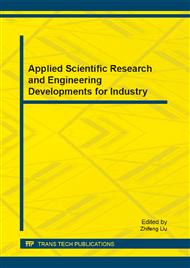p.242
p.246
p.250
p.255
p.259
p.263
p.268
p.272
p.276
Influence of the Driver Style in the Inlet Parking Process on the Energy Consumption of the EV Bus
Abstract:
The relationship between the difference of the driver behavior and energy consumption in the same bus line was studied through analyzing the inlet parking process of the driving cycles in order to solve the problem that the practical benefits in endurance mileage of the electric buses differed a lot. It showed that the energy recycled in the inlet parking process differed 21% between the best driver and the worst one and the energy difference was influenced dramatically by the accuracy of vehicle speed prediction and the tendency of deceleration of drivers.1.
Info:
Periodical:
Pages:
259-262
Citation:
Online since:
August 2013
Authors:
Keywords:
Price:
Сopyright:
© 2013 Trans Tech Publications Ltd. All Rights Reserved
Share:
Citation:


